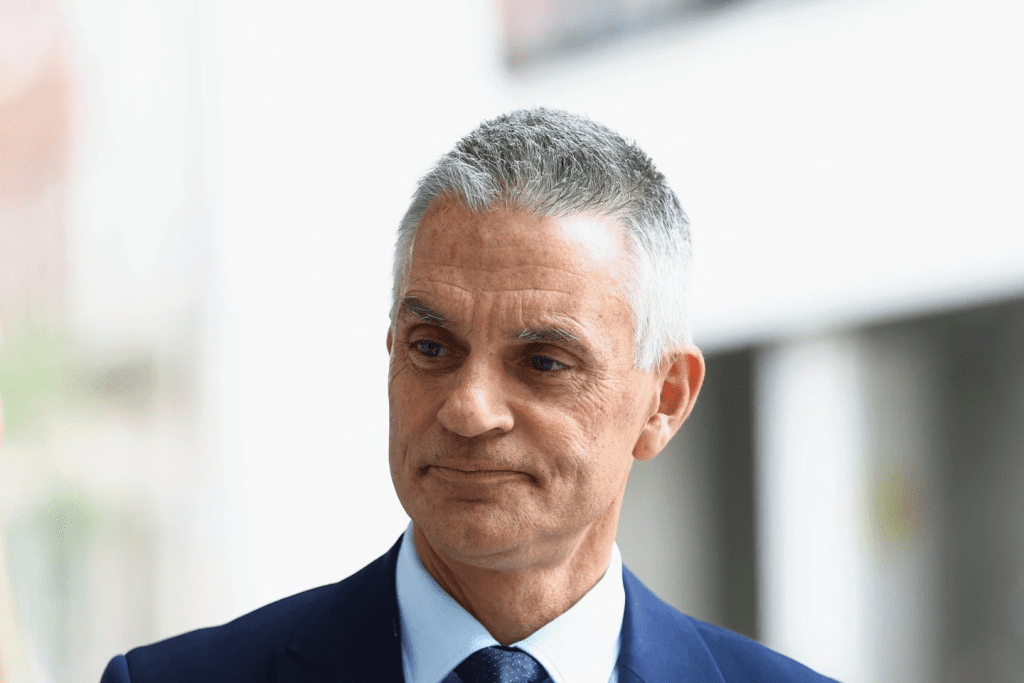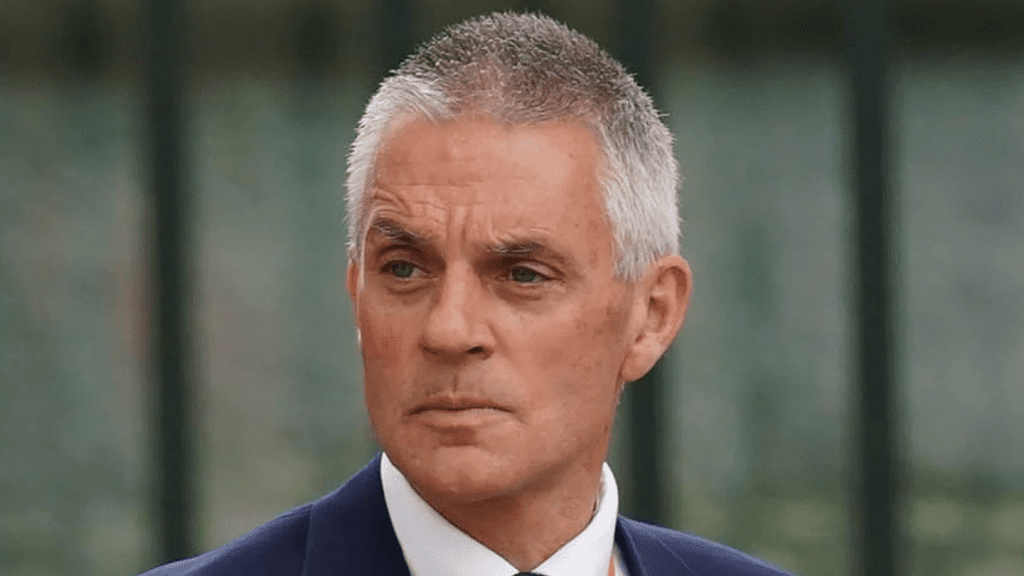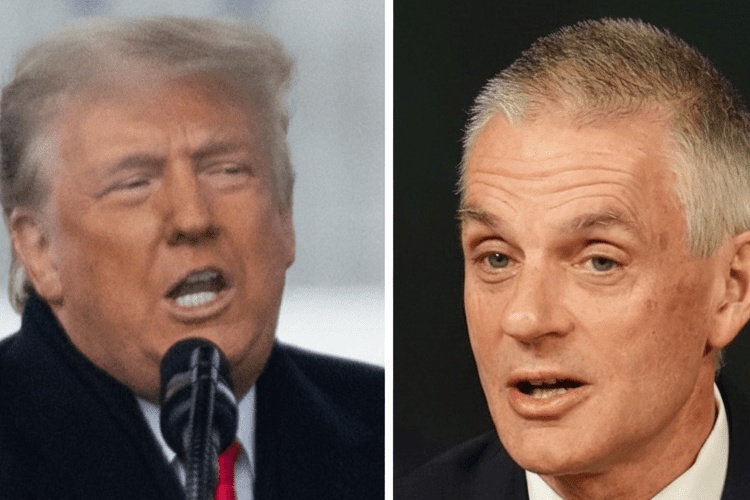Shock Resignations at the BBC: Director-General Tim Davie and News Chief Deborah Turness Step Down After Editing of Trump’s Jan. 6 Speech Exposed
The BBC — one of the world’s most trusted news institutions — is reeling tonight after its Director-General, Tim Davie, officially resigned amid a storm of global outrage. The British broadcaster admitted it aired doctored footage of former President Donald Trump’s January 6 speech in a high-profile documentary, triggering one of the most damaging credibility crises in its century-long history.
Davie, who had led the BBC since 2020, announced he was stepping down after what he called “a grave error of editorial judgment” that “violated the public’s trust.” The broadcaster’s head of news, Deborah Turness, also tendered her resignation, admitting that the incident had “caused deep harm” to the BBC’s reputation for fairness and impartiality.

The scandal erupted after whistleblower documents revealed that producers of a BBC Panorama documentary had edited together separate moments from Trump’s January 6 speech — effectively merging his phrases into a single line that made him appear to be inciting violence. The program presented the altered version without disclosure, showing Trump saying, “We’re going to walk down to the Capitol and we fight like hell,” as if it were one continuous quote.
In reality, those words were separated by nearly an hour — and in between, Trump had explicitly called for his supporters to protest “peacefully and patriotically.” That line was cut from the broadcast entirely. The revelation sent shockwaves across both the United Kingdom and the United States, fueling fresh accusations of media bias and political manipulation.
Within hours, American media outlets and political figures seized on the story. The White House accused the BBC of spreading “false, politically motivated propaganda,” while Trump himself reposted the news with a single word: “Vindicated.”

For Davie, a respected veteran who began his BBC career more than two decades ago, the fallout proved impossible to contain. In a somber statement released Sunday evening, he wrote, “I take full responsibility for what occurred under my leadership. The BBC must always be above politics — never its participant. For that standard to have been compromised on my watch is something I deeply regret.”
Turness, who took charge of BBC News in 2023 after a career at NBC and ITN, said the decision to leave was “painful but necessary.” “This moment demands accountability,” she said, adding that while the documentary team did not act with malicious intent, “intent does not erase impact.”
The BBC immediately launched an internal investigation after the whistleblower’s memo was leaked. Early findings showed that senior editors had raised concerns about the accuracy of the segment months before the broadcast but were overruled in what one insider described as “a rush to frame the narrative.” Critics say the institution’s internal culture has increasingly leaned toward editorial activism, a charge the BBC has repeatedly denied.

The House of Commons Culture Committee has already announced plans to summon BBC executives for questioning, while Ofcom, the UK’s broadcasting regulator, is conducting its own probe into potential breaches of impartiality and accuracy rules. Lawmakers from both sides of the aisle expressed alarm that the state-funded broadcaster could alter political footage during an election year, with some calling for reforms to prevent future abuses.
For Trump supporters, the resignations are proof of what they’ve argued for years — that global media outlets have selectively twisted his words to fit a narrative of chaos and extremism. In conservative circles, Davie’s resignation is being hailed as long-overdue accountability for a media establishment that, in their view, has operated without consequence.
But even among those who defend the BBC’s mission, there is little dispute that this is a major crisis. Analysts described it as the network’s most damaging scandal since the 2003 Hutton Inquiry, when the BBC was accused of misleading reporting on the Iraq War. “This is about trust,” said one former BBC executive. “Once you lose it, no amount of apologies will bring it back.”
Public reaction across the UK has been fierce. Viewers flooded the BBC’s official channels demanding transparency and questioning whether the broadcaster could still be relied upon to cover political events impartially. Davie’s apology and resignation, while unprecedented, may not be enough to stem the outrage.

The documentary in question has been quietly removed from the BBC’s website and iPlayer streaming platform. A revised version with full context is expected to be re-uploaded after review, though many believe the damage is already irreversible.
Inside the BBC, staff describe an atmosphere of disbelief and anxiety. One veteran journalist called the mood “heartbroken,” adding, “We’ve spent decades building credibility, and now it’s gone in one edit.” Another described the controversy as a “wake-up call” for journalists who feel political pressure from both internal culture and external scrutiny.
This story has also reignited debate over the future of the BBC’s public funding model. With its license fee up for renewal in 2027, critics argue the network’s taxpayer-supported status demands far greater accountability. Meanwhile, defenders of the institution say the scandal — though serious — should not erase the BBC’s legacy of excellence.

But for now, the immediate reality is stark: two of Britain’s top media executives have resigned in disgrace, and the BBC is fighting to survive the worst public trust crisis in its modern history. The story that began with an edited video clip of Donald Trump has now become a global symbol of media accountability — and the high price of losing credibility in an era where truth itself feels fragile.
As the dust settles, one thing is certain: the BBC’s next chapter will be written under unprecedented scrutiny. Whether it can rebuild faith in its journalism — and in itself — may determine not only its future but the very idea of impartial media in a divided world.


